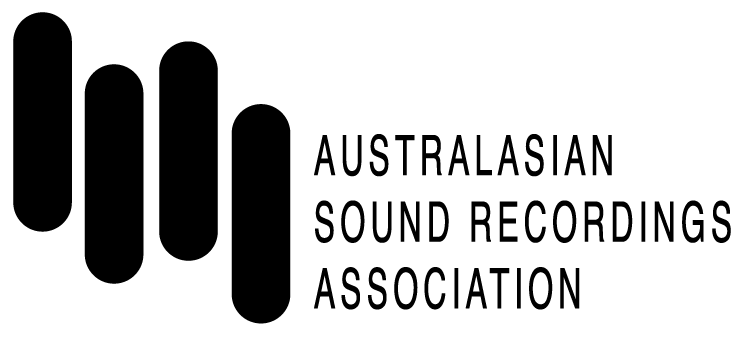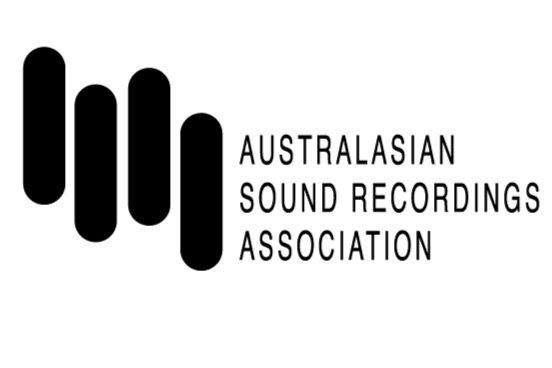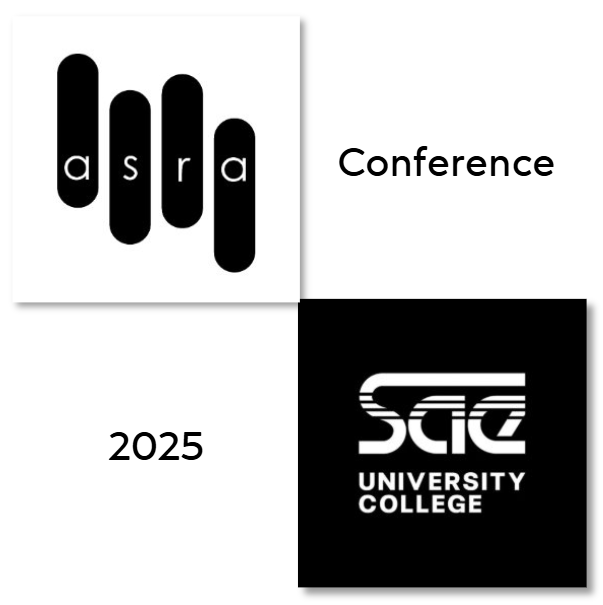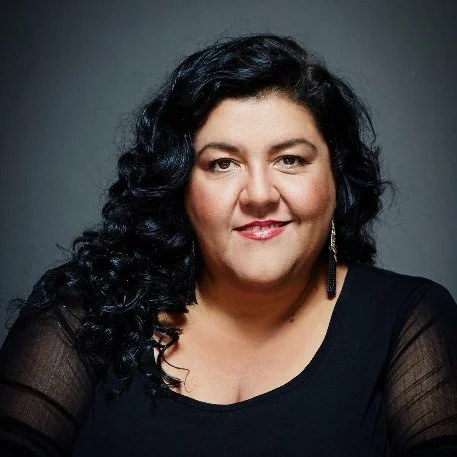ASRA 2025 Conference
Reflections on “Deadline 2025”
The Past, Present, and Future
Sydney, Gadigal Country and online
30-31 October 2025
Day 2
Friday, 31 October 2025
Conference Registration
8:30
Welcome
9:15
Dan Figurelli, Indiana University Libraries (USA)
9:30
Indiana University has preserved audio recordings from over 70 countries around the world. To demonstrate the impact of these historic recordings, I will discuss digitization efforts, technical challenges met with various formats, functionality, and how these once endangered sound recordings can integrate with their communities and dissemination for future generations.
Preserving Audio at Indiana University
Dan Figurelli is the Audio Preservation Engineer at Indiana University Libraries. He’s been a part of IU’s Media Digitization and Preservation Initiative (MDPI) since 2015. Specializing in rare audio formats, Dan has digitized over 20,000 lacquer discs & wax cylinders, featuring some of the most unique recordings in the world. He also teaches at IU’s Jacob’s School of Music, and plays in a band in Bloomington, Indiana..
Kailen Sallander, BAVC Media, San Francisco (USA)
10:00
Mapping the Magnetic Media Landscape
The forthcoming study titled ‘Mapping the Magnetic Media Landscape’ aimed to investigate the state of magnetic media preservation in the United States after the Library of Congress National Recording Preservation Plan altered us to similar deadlines around the decay of collections in 2012. From 2023-2025, the project, Mapping the Magnetic Media Landscape (BAVC Media, National Endowment for the Humanities) amassed hundreds of pages of data on the state of magnetic media preservation. The methodology included a survey, a series of in-depth interviews with cultural workers and preservation vendors, and site visits to archives across the United States. The findings identify the most needed topics in education preservation and training (from the perspective of cultural workers and vendors), trace changes in the field since the Library of Congress report was published over a decade ago, and provide real-world examples of how archives and vendors are finding creative solutions to equipment obsolescence and format-specific decay. In this presentation, BAVC Media covers the major findings from the final report, with a focus on community access and impact. We’ll uplift findings about how the state of magnetic media preservation in the US is impacting archivists, artists, researchers, and culture bearers as well as the creative solutions they employ to move their preservation efforts forward.
Kelli Shay Hix is Director and Principal Researcher of the national survey, Mapping the Magnetic Media Landscape with BAVC Media. She is a Fulbright Specialist and core member of the Community Archiving Workshop (CAW) Collective. Her past clients include the Smithsonian Institution, the National Geographic Society, and the Country Music Hall of Fame and Museum.
Kailen Sallander is a Lead Researcher and Co-Author of Mapping the Magnetic Media Landscape and Research & Development Manager at BAVC Media. In this role, she leads program evaluation, data collection, and field-wide studies at BAVC Media. She has previously worked with the San Mateo County government, and the research institution Child Trends on data-driven projects.
Moriah Ulinskas is a Co-Author and Advisor to the Mapping the Magnetic Media Landscape project. She is a public historian and core member of the Community Archiving Workshop (CAW) Collective. She was the Preservation Program Director at BAVC Media from 2011 to 2014. In her role, she oversaw the development of the first release of QCTOOLS and the AV Artifact Atlas, open-source tools for audiovisual preservationists, and established the NEA-funded Preservation Access Program.
Dr Hamish Sewell, Soundtrails.com.au
11:15
After 30 years of experimentation and creative storytelling, the art, craft and choreography of GPS triggered (locative) audio sound walks has come of age. While affording important archival sound documents of place and people; arguably the power of the locative audio, let alone its sonic authority, is most realised when listeners enter into an embodied dialogue with the physical world around them, in all its many layers.
Tilting the focus away from the disposable world of AI audio or the many formulaic sound walks geared around high-sales tourist destinations, this presentation invites us to consider the opportunities at hand, and the very real practical considerations that we, as audio creatives and curators, archivists, storytellers and historians etc, must now ask when deploying mobile devices to facilitate a genuine embodied listening experience on site. It draws on the Australian-based Soundtrails audio walk platform, now fifteen years in operation, and zeroes in on two examples heard onsite via the Soundtrails app today: the ‘Quarry’ in Portland, NSW, and the ‘Clever Man’ in the Bald Rock National Park. Both examples drill down into the rich sonic palette of locative audio and further deepen our understanding of what US oral historian Michael Frisch terms, a shared authority, relative to attributing contributors or determining who or what gets heard.
Bearing in mind the power and opportunities to build enduring listening experiences that can be deployed onsite—and not just as static digital archives, or as one-off artist showcases that are readily retired— this presentation invites a broader discussion around the merit of this approach, while also outlining some of the practical and technical road-blocks still in the way..
Soundtrails: the shared authority and power of locative audio
Dr Hamish Sewell is the founder and co-director of the Australian-based Soundtrails app. He has produced over fifteen commissioned audio walks through his work with Soundtrails and overseen various leading producers over the last fifteen years. He has a background in oral history working with the National Library, and prior to 2015, as a radio producer, he worked with Radio National on most of their flagship creative documentary programs. Among his many accolades, Dr Sewell’s work has won a Third Coast Prize; been shortlisted for the Sound Walk September, and been shortlisted for the Queensland Literary Awards. Dr Sewell’s newly completed PhD (on locative audio) has just been awarded the Macquarie Universitie’s Vice Chancellors prize for research and excellence. Dr Sewell currently lives in Canberra.
Daniel Roberts & Joshua Sellick, National Film and Sound Archive of Australia
11:45
The Deadline 2025 Collections at Risk paper states that: “The ability to replay magnetic tapes depends on the interplay of equipment, skills and technologies” and more specifically “The last generation of fully experienced analogue to digital transfer broadcast engineers will be retired. Their practical technical skills will either have been strategically shared with the newer generations of digital engineers or lost forever.” 1.
Undertaking the large-scale digitisation of the NFSA’s magnetic audio collection has included challenges in growing an existing specialised team of audio technicians into a much larger team. Newer generations, while bringing a wealth of knowledge in digital platforms and systems, have required significant skills development in older formats, technology, and traditional studio craft to achieve high quality audio archiving goals. During the same period electronics engineering staff at the NFSA have faced similar challenges in retention of the knowledge necessary to support older systems and technology.
This presentation reflects on training challenges and successes in the Audio Services and Audio Engineering teams at the NFSA for Deadline 2025 goals and beyond. Examples include training methodology, quality control, collection risk mitigation and the importance of staff involvement with preventative maintenance feedback. We examine the impact of losing long term experienced electronics/engineering staff and predict future training requirements as collections become progressively digitised while the accessibility of quality content becomes increasingly important.
Training challenges and successes in Audio Services
Daniel Roberts is the Audio Services Technical lead at the NFSA.
Joshu Sellink is an Assistant Audiovisual Engineer at the NFSA.
Janelle Mikkelsen & Lydia Sands-Lat, Australian Broadcasting Corporation
12:15
From Airwaves to Archives
This presentation explores the evolving landscape of the ABC Archives and its transformation into a modern digital environment. We will begin by outlining the current operating context, the progress achieved so far, and the key challenges faced in adapting archival practices to meet the demands of a rapidly changing media ecosystem.
Attendees will gain insights into how these changes are shaping the future of content preservation and accessibility.
The session will then dive into the ABC Digital Archive, highlighting recent innovations, and new features that enhance efficiency and user experience. We will showcase advancements in automated archiving, and discuss the role of artificial intelligence in streamlining discoverability and workflows and unlocking new possibilities for archival management.
Janelle Mikkelsen is the Manager of Archives at the Australian Broadcasting Corporation (ABC), where she leads strategic initiatives to preserve and manage the broadcaster’s extensive media collections. With over 20 years of experience, Janelle has played a pivotal role in transforming archival operations to meet the demands of a digital-first environment. Her work spans collection services, digitisation projects, and implementing innovative solutions for long-term preservation. She is passionate about leveraging technology to enhance archival practices, including automation and AI-driven solutions, ensuring that ABC’s rich cultural and historical assets remain accessible for future generations.
Lydia Sands-Lat is the Manager of Digital Collections and Curation at The Australian Broadcasting Corporation, based in Ultimo. With over 15 years of experience in archives, television and technology, she specializes in archive system development and design projects. Lydia has led initiatives in archival auto-cataloguing, TV Scheduling and media management. She is passionate about using data efficiently and intelligently. Her work focuses on implementing sustainable digital preservation workflows, metadata interoperability and enabling discoverability of content in the collections.
ABC Archives Facility Tours
(Register onsite - places are limited)
1:30
Kevin Bradley - Keynote Address
2:15
“The journey, or the destination”
Kevin Bradley is a distinguished Australian audio archivist who has dedicated nearly four decades to the preservation of sound and audiovisual heritage, primarily through his work at the National Library of Australia. Over the course of his career, he has held several key roles at the NLA, including Curator of Oral History and Folklore, Director of Sound Preservation, and Manager of Digital Preservation. Bradley's expertise spans oral history, sound archiving, and digital preservation, and he has been instrumental in shaping national and international standards in these domains. He played a pivotal role in the development of the IASA-TC04 Guidelines on the Production and Preservation of Digital Audio Objects, serving as editor and contributor to both the 2004 and 2009 editions. Internationally, Kevin has been deeply involved with the International Association of Sound and Audiovisual Archives (IASA), where he served as President, Vice Chair of the Technical Committee, and a long-time contributor to its publishing and training initiatives. In 2015, he was honored with the IASA Special Recognition Award for his outstanding service to the organization and his leadership in advancing the preservation of audio and video heritage. Beyond IASA, Bradley has contributed to global efforts through his work with UNESCO, particularly as a member of the Memory of the World Programme Sub-Committee on Technology. He authored influential documents, including one addressing the risks of using recordable CDs and DVDs for archival storage, which helped shift archival practices away from optical media. He also served as ASRA and was a member of the National Film and Sound Archive Steering Committee from 2004 to 2008. Outside of his professional life, Kevin is known for his love of Irish folk music and can often be found playing fiddle at local sessions in Canberra.
ASRA Award Presentations
3:20
The 2025 Alice Moyle Lecture - Gillian Moody, National Film & Sound Archive.
3:35
Gillian Moody is a proud Wodi Wodi woman and the Head of First Nations Engagement at the National Film and Sound Archive (NFSA). She leads initiatives that support the preservation, interpretation, and respectful handling of Aboriginal and Torres Strait Islander cultures within the national collection. Her work spans cultural protocols, community collaboration, and strategic programming.
Gillian has played a key role in projects that include Deadline 2025 material for the Strehlow Collection, the Torres Strait Islander Media Association, and First Nations Media Australia.
In addition to her archival leadership, she is an award-winning filmmaker whose storytelling continues to amplify First Nations voices and perspectives.




